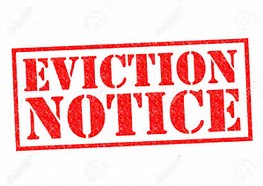How to Evict a Tenant in Alberta

While owning investment property has its share of benefits, including stable income to pay your mortgage, some aspects of being a landlord can be challenging, especially when you encounter problems with a tenant.
Whether the tenant has breached the tenancy agreement, or conducted illegal activity on the premises—you may be confronted with a situation where you need to evict them from the property.
Before proceeding with eviction, it’s important to familiarize yourself with the Residential Tenancies Act to ensure that you are following the proper eviction process in Alberta.
Landlord and Tenant Responsibilities
When a landlord and tenant enter a residential tenancy agreement, both parties agree that the tenant will lease property from the landlord for a specific period of time.
Additionally, each party will take on certain responsibilities and obligations during the tenancy.
General covenants (agreements) for a landlord include:
- The leased premises must be available to the tenant on the day the tenancy is set to begin
- The landlord agrees not to interfere with the tenant’s peaceful enjoyment of the premises;
- And the property (house, apartment, townhouse etc.) must meet the minimum health requirements under the Public Health Act, Housing Regulation, and Minimum Housing and Health Standards
A tenant must adhere to the following covenants:
- They must pay rent when it is due
- The tenant cannot interfere with the landlord’s rights or that of their neighbours
- They cannot carry out illegal activity on the premises
- They cannot endanger those who share in the property
- They cannot cause severe damage to the property, and must keep the property in clean condition
- The tenant will vacate upon the expiration or termination of the tenancy
These are the basic obligations of a landlord and tenant as governed by the Residential Tenancies Act.
Additional responsibilities also apply to each party and may vary according to your tenancy agreement or unique rental situation.
Determining Cause for Eviction
In order to evict a tenant, there must be just cause to do so. This means they must have substantially breached the lease agreement, or violated one of the covenants listed above.
A landlord may send a 24-hour eviction notice if a tenant has:
- Caused severe damage to the property
- Committed physical assault or threatened violence
A 14-day notice is required for all other breaches to the lease agreement, including:
- Continued failure to pay rent when it is due
- Performing illegal acts on the premises
- Endangering others in the building
Serving an Eviction Notice
A landlord can serve a written eviction notice in person or by mail.
The notice should include:
- Reason for eviction
- The date that the tenant is expected to vacate
- The address of the premises
- Signature of the landlord or agent
- The amount of rent that is due when the notice is served and any other rent that may come due during the notice period, if any.
When serving the eviction notice in person, it’s recommended that you have a neutral third party with you to witness that the tenant received it.
Sending the notice by mail can pose a risk if the tenant does not pick it up or chooses to ignore it, in which case they could claim they did not receive the notice. Hand-delivering the notice ensures that the tenant received it and leaves no room for discrepancies at a later date.
In a 14-day notice, the tenant has 14 clear days to vacate the premises. For instance, if you deliver the notice on the 1st of the month, the tenant has until the 16th of the same month to move out. The day the eviction notice is served and the day the tenancy ends are not included as part of the 14 days.
When a Tenant Refuses to Leave the Property or Pay Damages
If you have provided sufficient notice to your tenant and you have evidence to support the lease violation, yet the tenant has not complied or objects the eviction, you may pursue other options.
A landlord can apply to the Residential Tenancy Dispute Resolution Service (RTDRS) or the Alberta court within 10 days after the termination date for a court order to confirm the termination and/or seek rent arrears or damages from a tenant.
In Conclusion
When a tenant substantially breaches your rental agreement, you may have grounds to evict them. If you follow proper eviction procedures, you may be fortunate enough for a tenant to comply and provide you with compensation for damages, or to vacate the property without hassle.
However, if your tenant ignores or objects your notice, you may want to consider applying to the RTDRS or provincial court for further resolution.

